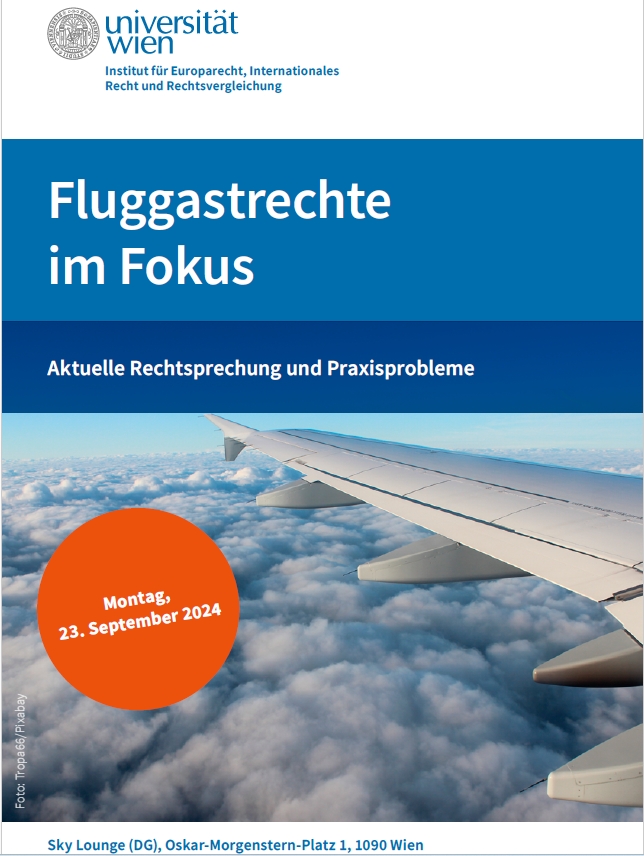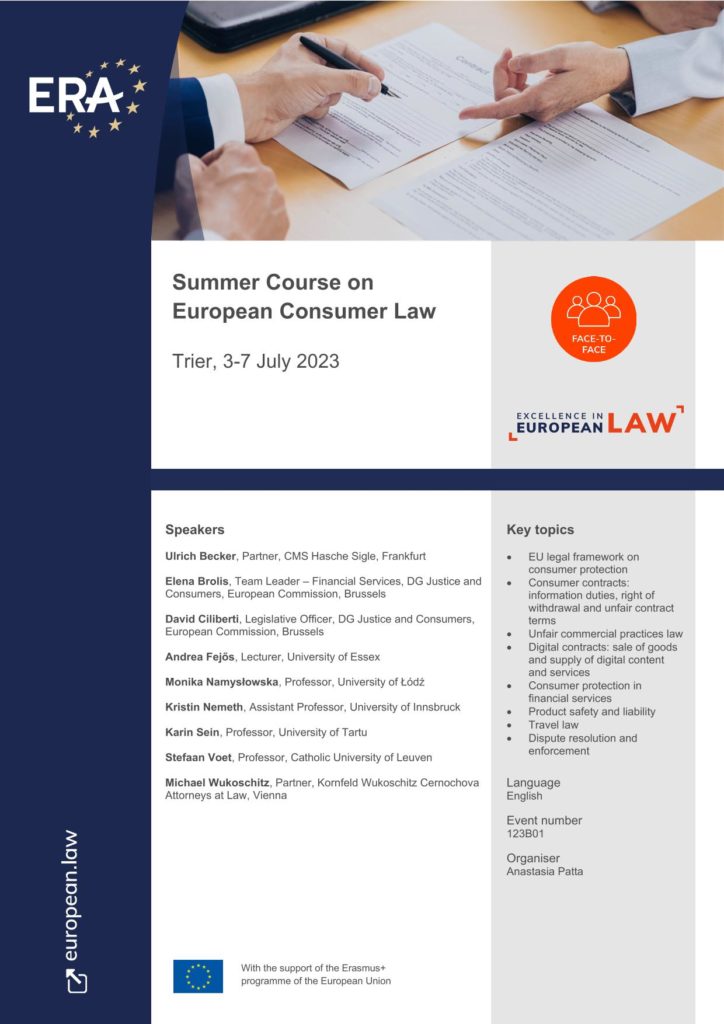Archive
Focus on Travel Law in Autumn

As soon as the peak summer holiday season is over, travel law, one of our firm’s areas of expertise, is the focus of a number of top-class conferences:
- September 20-21, Hamburg: Travel Law Day of the German Society for Travel Law (Deutsche Gesellschaft für Reiserecht/DGfR)
- September 23, Vienna: Air Passenger Rights Day of the University of Vienna, sponsored by our law firm and with a lecture by Michael Wukoschitz (“Gleiches ist nicht immer gleich und andere Erkenntnisse aus Luxemburg”)
- September 24-25, Vienna: 35th World Conference of the International Forum of Travel and Tourism Advocates (IFTTA) with a presentation by Michael Wukoschitz (“Package Travel – from a Simple Concept to Increasing Complexity”)
- October 6-8, Lisbon: ESHTE Tourism Congress with presentation by Michael Wukoschitz (“The New Passenger Mobility Package”)
- October 10-11, Trier: ERA Annual Conference on European Consumer Law with presentation by Michael Wukoschitz (“The New Passenger Mobility Package”)


ERA Summer Course on European Consumer Law
The Academy of European Law in Trier is holding a summer course on European consumer law from 3 to 7 July, 2023. The course will cover general consumer protection rules, the rules on unfair contract terms, product safety, digital contracts, consumer protection in financial services, enforcement and more. As part of the course, Michael Wukoschitz will lecture on air passenger rights, package travel law and timeshare.
The purpose of the summer course is to provide a thorough introduction to European consumer law. EU legislation and recent case law of the Court of Justice of the EU will be presented. Participants will be able to deepen their knowledge through discussions, case studies and workshops. The course also includes a visit to the European Court of Justice in Luxembourg.
The course will be held in English. Further information and registration at www.era.int/?131748&en
Online Conference on Recent Developments in European Travel Law
The International Travel Law Network (ITLN), an association of lawyers specialising in travel law, organised an online conference on 27 March 2023 to discuss recent developments in European travel law.
The topics included
- the right to terminate a package travel contract in case of unavoidable and extraordinary circumstances, in particular the relevance of travel warnings and the relevant point in time for a withdrawal;
- the CJEU decision on price reduction claims in the event of impairment due to extraordinary circumstances;
- current case law on travel law in Malta;
- the current status of the revision of the Package Travel Directive by the EU Commission; and
- the tour operator’s right of redress against service providers.
The event was attended by more than forty participants, including representatives of several tour operators. As the Austrian representative on the panel, Michael Wukoschitz chaired the discussion on the right of withdrawal. For media coverage, a representative of the magazine “Travel Weekly” took part.
A video recording of the conference is available on YouTube.



